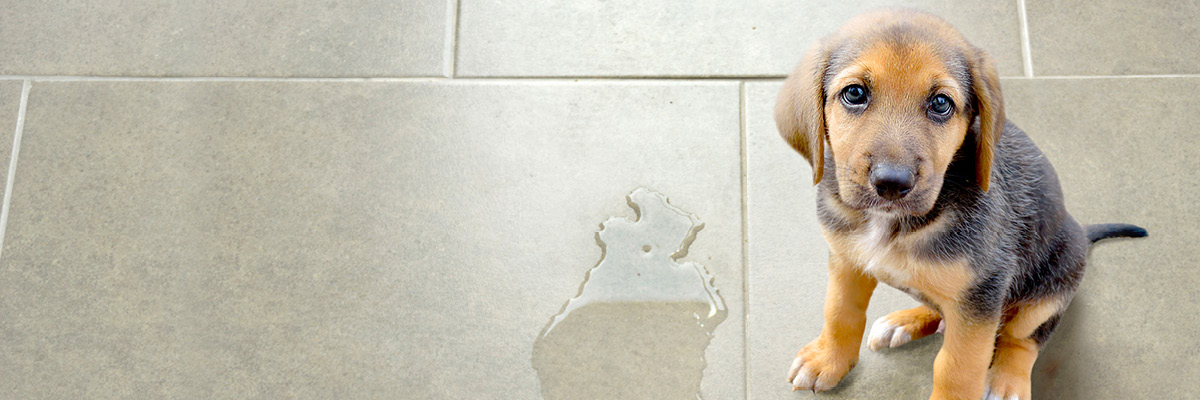Buying a puppy and nurturing it as it becomes an adult can bring plenty of excitement, but it can also be very testing on your patience. It might take a few months to toilet train a puppy, but it's all part of the joy of being a puppy owner. Here are a few puppy toilet training tips to help you.
Regularly take your puppy outside
It's important to give your puppy the opportunity to go to the toilet outside when it might need it. Scenarios that might trigger a toilet break are:
- Before or just after sleeping
- After food
- When left alone for sometime
- When excited (i.e after a walk or when visitors come round)
Learn the signs that your dog need to go to the toilet
You'll soon spot the signs that your puppy is about to relieve itself. Normally, this involves walking in a small circle, sniffing the ground and bending down in a squat. If you see your pet begin to do any of these things, gently interrupt them and walk them outside. If they continue and do their business outside, reward them. If they don't go to the toilet outside, keep an eye on them if you go back inside as they may try again.
Reward your pet
Show your pet that you are pleased with what they are doing when they go to the toilet outside. One way of doing this is to reward them with a treat and affection. The more you reward your dog for its behaviour, the more likely they are to continue behaving in that way.
Prompt your dog to go to the toilet when you ask them
It might only be a few words, but try to get into the habit of saying specific words while your pet is relieving itself. It can be anything like “go toilet” or “have a wee”. Saying the same specific phrase during this time will eventually cause your dog to associate those words with the action it's doing. Then, if you ever need your dog to go to the toilet (before you are about to go out for example), simply say the words and your pet will respond in the way they've been taught.
If an accident does happen
The best way to house train your puppy doesn't involve shouting or getting angry if they make a mistake. If an accident does happen, don't tell them off. Simply clean up the area and try and spot if your pet is going to do it again. Shouting or telling off your puppy may make them anxious about their relationship with you and may cause them to go to the toilet in hidden places inside the home.
The tips above on how to house train your puppy should help through the initial phase of introducing your puppy into your home. It won't be long before your puppy becomes a firm member of the family and settles well into your home.
A good pet insurance policy is key for giving your puppy the cover it needs in case something unexpected happens. M&S Pet Insurance offers insurance for puppies over 8 weeks old, and has various levels of cover for you to choose from to create the perfect plan for you and your pet.
Cover for behaviour issues is only available on premier policies and cover limits apply.
